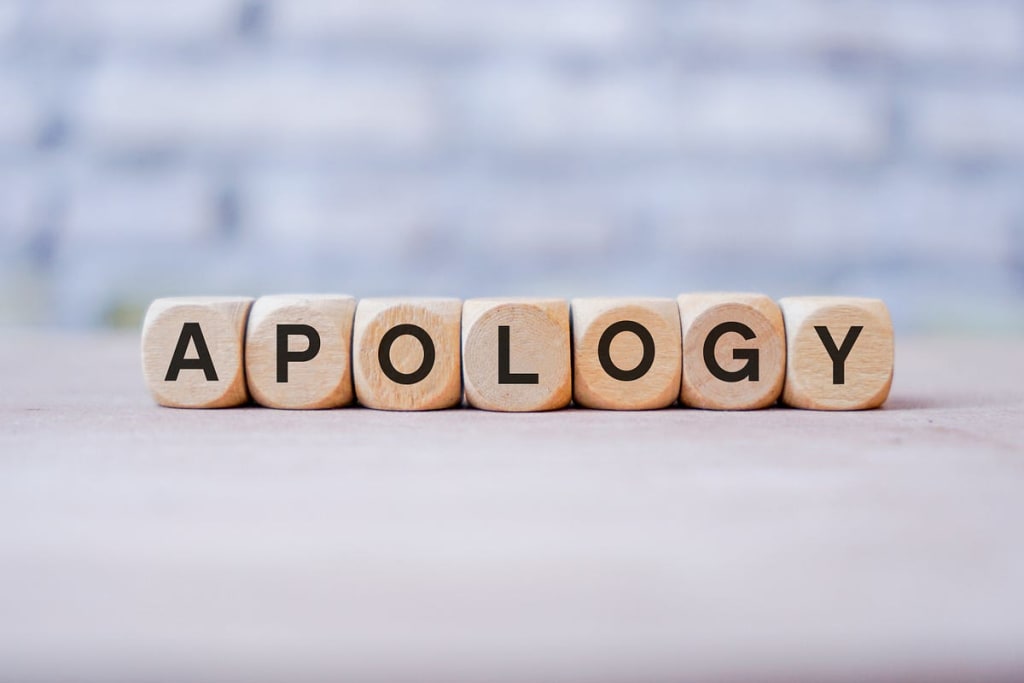How a Small Apology Moment Can Impact Relationships?
Small Apology

I was hurt by my close friend's insensitive comments or actions. Perhaps they made fun of me in front of others or betrayed my trust somehow. I was hurt and felt mixed anger, resentment, and sadness toward them, but I didn't know how to address the situation.
Days, weeks, or even months passed, and I carried these negative feelings. I avoided my friend or interacted with them superficially, unable to fully forgive or forget what happened. However, deep down, I wished that they would acknowledge the harm they caused and make things right.
One day, to my surprise, my friend approached me and apologized for their actions. They acknowledge the hurt they caused and express genuine remorse for their behavior. They listen to my feelings and thoughts without defensiveness or excuses. They take responsibility for their actions and express a desire to make amends.
At first, I may feel taken aback or hesitant. I may have waited so long that I don't know how to react. However, as my friend continued to speak and show genuine empathy, I started to feel a sense of relief and closure. I realize they genuinely care about my feelings and want to repair the damage.
This small moment of reconciliation and empathy can profoundly impact my emotional well-being and my relationship with my friend. It can bring a sense of validation and trust that may have been missing. I may feel more open and honest with them, sharing my thoughts and feelings without fear of judgment. I may also beble to forgive them and let go of the negative emotions that were weighing me down.
On the other hand, imagine that I was the one who hurt someone else. Maybe I said something hurtful without realizing the impact it would have or broke a promise that was important to them. I felt guilty and ashamed of my actions but didn't know how to make things right.
Days, weeks, or even months passed, and I avoided the person or interacted with them superficially. I have rationalized my behavior or minimized the harm I caused. However, deep down, I knew I needed to take responsibility for my actions and apologize.
One day, I gathered the courage to approach the person and apologize sincerely. I express my regret and take full accountability for my behavior. I listen to their feelings and thoughts without defensiveness or excuses. I desire to make things right and ask them what they can do to repair the damage.
At first, the other person may feel hesitant or guarded. My actions may have hurt them and don't know if they can trust you again. However, as they continue to speak and show genuine remorse, they feel a sense of validation and respect. They realize that I care about their feelings and are willing to make things right.
This small moment of honesty and accountability can help the other person heal and move forward. It can bring a sense of closure and validation that may have been missing before. They may feel more open and honest with me, sharing their thoughts and feelings without fear of judgment. They may also find themselves able to forgive you and let go of the negative emotions that were weighing them down.
In both cases, a small moment of apology and reconciliation can profoundly impact a person's emotional well-being and relationships. It can bring a sense of closure, validation, and trust that may have been missing before. It requires courage, empathy, and humility to take responsibility for one's actions and make amends, but the rewards can be significant. Apologizing and reconciling can help repair relationships that were once broken and bring peace and closure to both parties involved.
It's important to note that apologies should be genuine and sincere. It can do more harm than good if you apologize just to "smooth things over" without acknowledging the damage you caused. Giving the other person space to process their feelings and emotions is also essential. They may need time to forgive you, and that's okay. The most important thing is to show empathy, take responsibility for your actions, and express a desire to make things right.
In conclusion, a small moment of apology and reconciliation can significantly impact a person's emotional well-being and relationships. It can bring a sense of closure, validation, and trust that may have been missing before. If you've hurt someone, taking responsibility for your actions and apologizing sincerely is essential. If someone has hurt you, it's important to allow them to make things right and to be open to the possibility of reconciliation. Doing so can build stronger and more meaningful relationships with those around us.





Comments
There are no comments for this story
Be the first to respond and start the conversation.